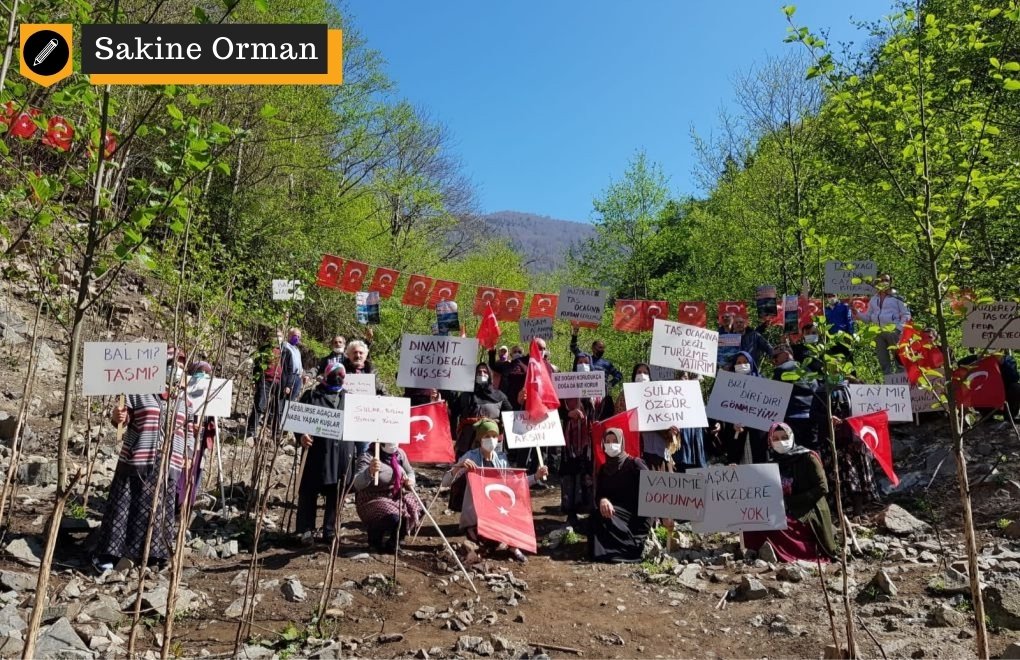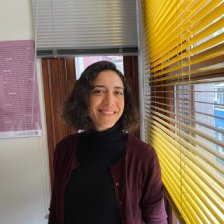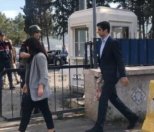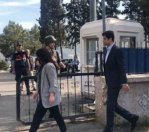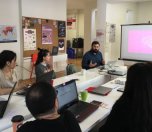MAY 4-5 DIGITAL SECURITY WORKSHOP
Digital Security Workshop by Işık Mater and Alp Toker
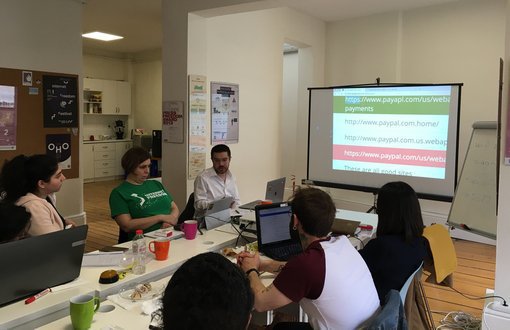
Click to read the article in Turkish (1) (2)
The Digital Security Workshop was done on May 4 and 5.
The workshop began with Işık Mater and Alp Toker informing the participants about the independent digital research organization TurkeyBlocks.
They told about their works that focus on accessing information and policy research against internet cuts.
Mater and Toker told about internet cuts in countries such as Sri Lanka, Venezuela and Iraq and their impact on access to information.
Mater emphasized that it is necessary today to take a look at access to information and to follow the formation of knowledge and to know about internet cuts.
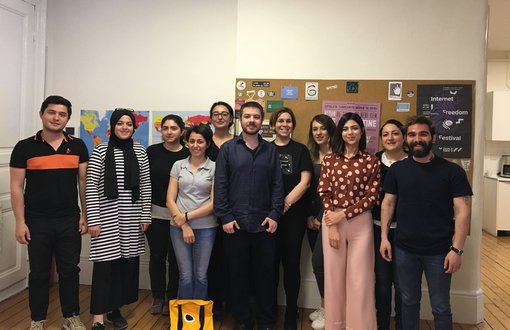
Digital security risk evaluation
The participants were informed on the basic methods of examining digital risks that they can face in the working environment.
In a group study after that, the participants filled a form about the information they produced. The following questions were asked in the form:
*How critical is this information?
*Does this information contains personal information about third parties?
*Did they lose this information or was this information stolen from you?
The participants said "yes" or "no" to these questions, explaining how it happened if they answered "yes".
In the second stage of the group study, the participants discussed the following subjects:
*What are the potential digital risks for your information and electronic devices at the office?
*List the same risks for public spaces (cafes, airports, libraries, etc.).
*What kind of measures should businesses and companies take to protect themselves from these risks?
*What should be done for making a secure working environment?
*What kind of tools do you use to ensure the security and correctness of and to confirm information?
How does communication become more secure?
Mater and Toker elaborated how the communication can be made more secure and how the Internet works, talking about browser security settings, browser session isolation, the impact of the cookies, ensuring data safety, and the best applications.
Alp Toker told the participants about phishing attacks through a quiz.
Basic notions in encryption, points worthy of attention when choosing VPNs, methods of secure communication and messaging, and secure search engines were told to the participants.
.jpg)
Measures against online abuse
Asking, "How can we remove the content that is used with abuse purposes from the Internet?" Toker said women and female journalists are the ones who are subjected to online abuse most.
Also talking about the incidents of online abuse in the world, Toker mentioned gender-based violence on the Internet, the risks female journalists face and the solutions for these, namely support lines and access to social media companies.
Second day
The second day of the workshop began with Mater talking about the most chosen passwords by year and how to create a secure password.
Saying that the passwords that do not contain numbers or symbols can be broken easily today, Mater told about the importance of using a password manager. KeePass software was installed on the participants' computers.
Tools for access to information
Tor, VPN, SOCKS, web proxies and their risks were told to the participants.
"Even when you use Tor, don't feel safe. There is no one hundred percent security, it is 70 percent at most when you use this browser," said Mater.
Mater also said that using a VPN also means protection from censorship. The participants were then told about blocked service providers around the world.
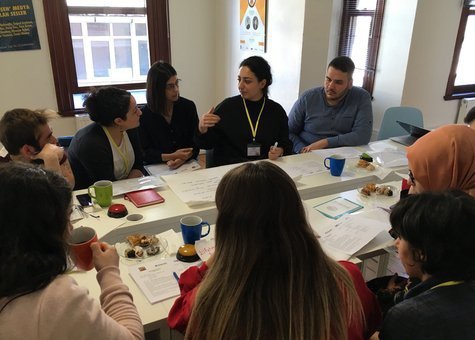
Messaging security
Alp Toker told the participants about Whatsapp, Telegram and Signal.
"Everyone thinks Telegram is secure but service providers can read the messages. So Whatsapp is better in terms of security because it has an end to end encryption. But we can't say it is a hundred percent safe," said Toker.
"Signal is a free and open source software. It doesn't have an owner. So it is a bit more secure and practical," he added.
Mater suggested that journalists should use SecureDrop in order to protect their sources.
At the end of the workshop, an evaluation was done. The participants were given Digital Security Workshop certificates.
The Digital Security Workshop is supported by the Sweden International Development Cooperation Agency (SIDA) and Journalism Media International Center(JMIC) at Oslo Metropolitan University.
| About Işık Mater
Işık Mater is a digital rights activist and research director at the TurkeyBlocks Project. She is also the chair of the Alternative Informatics Association and an organizer of the Ungovernance Forum. The TurkeyBlocks works on reporting internet cuts, protecting the freedom of expression of the communities under risk such as the LGBTIs, providing equality for women in the technology sector and training journalists on digital security. About Alp Toker Technologist. Founder of the TurkeyBlocks project which does real-time censorship tracking. He took an active role in the development of most web browsers and smartphones that are used today. The technology Toker developed can find violations of freedom of expression in a specific region or a country within minutes. At the same time, he supports internet governance policies that protect online freedom of expression. About Atölye BİA (BİA School) Seminars on journalism organized by IPS Communication Foundation/bianet under the name of "Atölye BİA" (BİA School) are open to journalists from different sections of media, journalists dismissed from their jobs and students of communication faculties as well as everyone who would like to engage in journalism. The basic journalism programs held as part of Atölye BİA focus on a series of subjects such as "Introduction to Journalism, News Photography, Rights-Based Journalism, Gender-Based Journalism, Peace Journalism, Legal Journalism, Investigative Journalism, New Media in Reporting, Visualization Tools for Journalists and Digital Security." As part of the Atölye BİA Program, the following workshops were held in 2018: New Media Workshop, News Photography Workshop, Reporting and Translating in Kurdish Workshop, Environmental and Urban Reporting Workshop and News for Journalists Workshop. The first program of 2019, "the Basic Journalism Workshop", was held from February 11 to 18. Basic and advanced journalism workshops will continue to be held throughout 2019.. This project is carried out with the support of the Swedish International Development Cooperation Agency (SIDA). |
(SO/VK)
Locals sue the ministry: ‘Cancel the mining licenses granted for Mount Kartal’
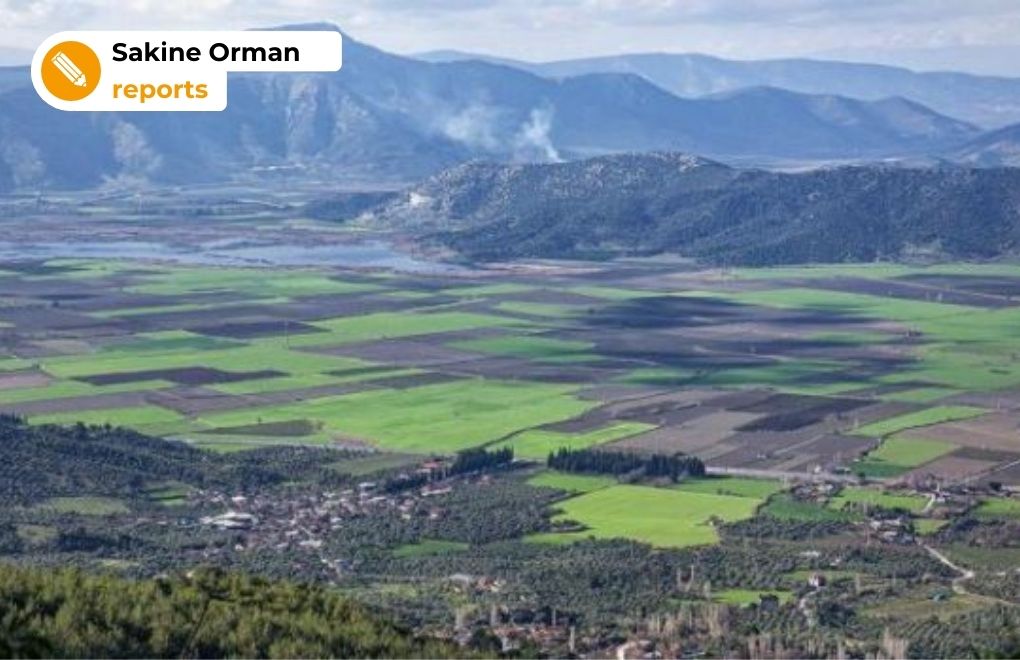
Students face 'housing crisis' as universities about to open
.jpg)
Lawyers to cycle from the Hague to ECtHR for ‘unconditional justice’ in Turkey

Criminal complaint against Minister of Forestry amid raging fires in Turkey
.jpg)
RESISTANCE AGAINT STONE QUARRY
Open call to Rize Bar for İkizdere: Number of lawyers tops 1,200
